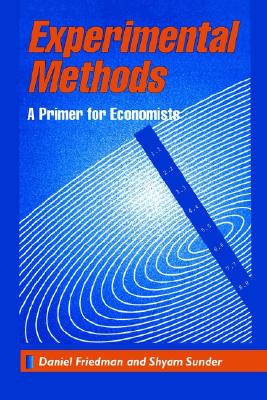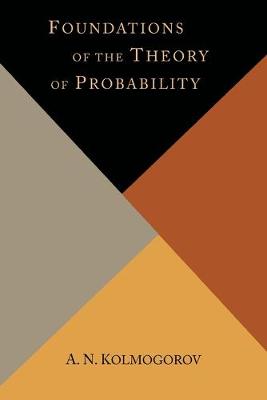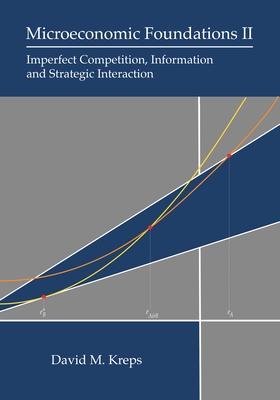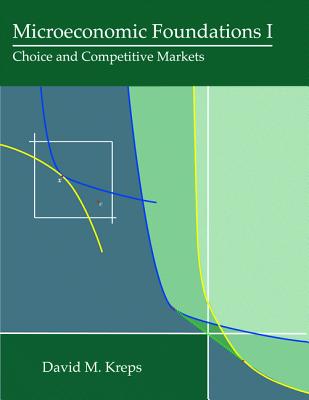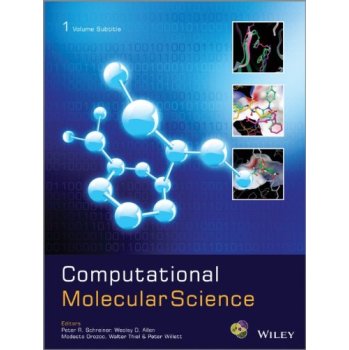
Computational Molecular Science
分子计算科学
分子生物学
¥
26550
售 价:
¥
21240.00
优惠
平台大促 低至8折优惠
发货周期:预计3-5周发货
作 者
出 版 社
出版时间
2014年03月06日
装 帧
精装
页 码
3456
语 种
英文
综合评分
暂无评分
- 图书详情
- 目次
- 买家须知
- 书评(0)
- 权威书评(0)
图书简介
WIRE Computational Molecular Science Wiley Interdisciplinary Reviews (WIREs) represent a major new hybrid publication model that combines the most powerful features of traditional reference works and review journals in a compelling format designed to exploit the full potential of the online medium and of printed books. WIREs--Computational Molecular Sciences (CMS) thus embodies the logical development of the highly successful Encyclopedia of Computational Chemistry. The maturing of the field of computational chemistry, in a broader context, perhaps better referred to as computational molecular sciences, required the development of an appropriate publication platform that takes into account the large variety of research approaches as well as style of presentation, and the many visual as well as dynamic aspects that a print-only review journal simply cannot offer.It is apparent that the traditional way of publishing technology-laden reviews frequently hampers access for students or professionals from neighbouring fields; it does not encourage or reflect the highly interdisciplinary culture of scientists developing and applying computational methods. Hence, WIREs--CMS combines the best possible features of major online reference works (high visibility, fast searches, and electronic accessibility) with the completeness, rigor, and overall high quality of review journals. The publishing model adopted for WIREs--CMS ensures that it benefits from full journal-type indexing and impact factors.De facto WIRES - CMS is a review journal, but a review journal covering the field systematically. As a review journal it is indexed and abstracted by all major services. Computational Molecular ScienceComputational Molecular Science is a print encyclopedia including all chapters published in WIRES - CMS from January 2011 to December 2013. The chapters were commissioned by the editors with a table of contents in mind which would cover all areas relevant for the understanding of computational methods used in molecular sciences.Computational molecular sciences are grounded in the techniques of computer-based modelling and analysis, relying on specialized hardware and software development, algorithm design, and database management to carry out highly data-intensive and algorithmically complex modelling tasks. These methods and strategies have close connections to theoretical chemistry, biology, and materials sciences as well as to neighbouring applications. In selecting authors and topics for this handbook the editors made sure that interdisciplinary aspects were at the forefront.Computational Molecular Science makes computational approaches accessible to a diverse audience of scientists and engineers. It captures the crucial interdisciplinary flavour of this field by requiring authors to address the key topics from the differing perspectives of chemistry, biology, materials science, and computational modelling. All content is defined broadly as review type by summarizing the current state of knowledge in a particular field, but not presenting the results of original (primary) research. Several distinct article types have been commissioned: Overviews provide a broad and relatively nontechnical treatment of important topics at a level accessible for those without a strong background in the field. Advanced reviews, aimed at researchers and advanced students with a strong background in the subject, review key areas of research in the style of leading review journals. Focus articles are short contributions that describe specific real-world issues, for example, implementations, etc.; these contributions are of a technical nature. Opinions provide a forum for thought leaders to provide a more individual perspective on the field in question. Software articles are short entries that describe specific software packages of high utility in the field, with an emphasis on their capabilities and implementations rather than methodology. Each article type includes an introductory summary that succinctly presents the key ideas and conclusions of the review. Finally, Editorial commentaries provide an opportunity for the editors to offer their own syntheses of broad areas of research in a flexible and informal style.Wiley and the WIREs editors are firmly committed to this new concept of bridging the gap between online journals and reference works. The content of Computational Molecular Science is structured in the following major sections:Computer and Information Science: This includes a wide range of techniques and applications used in Chemoinformatics, such as artificial aspects, patent information, semantic web, nomenclature, synthesis design, etc.Electronic Structure Theory: Covers computations of molecules based on ab-initio methods, quantum molecular methods and density functional theory.Simulation Methods includes free energy methods, molecular dynamics, Monte-Carlo methods and molecular mechanicsSoftware, describes existing software packages in the areas of molecular modelling and quantum chemistryStructure and Mechanism: This section concentrates on applications in the areas of computational biochemistry and biophysics, computational materials science, molecular structures, catalysis and reaction mechanisms.Theoretical and Physical Chemistry: This includes reaction dynamics and kinetics and spectroscopy.
本书暂无推荐
本书暂无推荐

